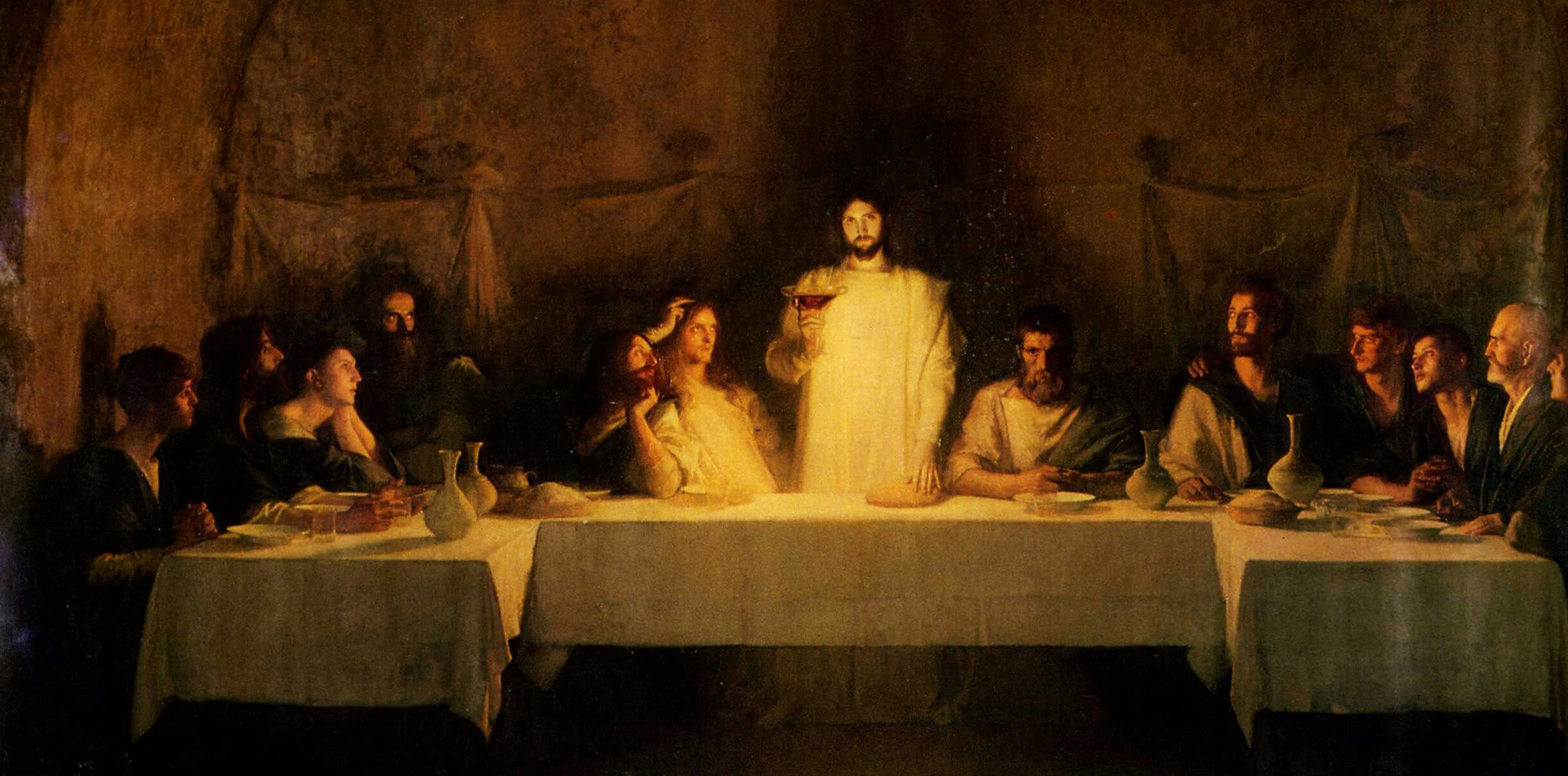Come to the Table
Finding Inclusion at God’s table
by Rebecca Lister

The Last Supper, 1896, by Pascal-Adolphe-Jean Dagnan-Bouveret (1852–1929)
You prepare a table before me in the presence of my enemies; you anoint my head with oil; my cup overflows. Surely goodness and mercy shall follow me all the days of my life; and I shall dwell in the house of the Lord my whole life long. — Psalm 23: 5-6
Psalm 23 is arguably one of the most famous, if not THE most famous Psalm. Its pastoral imagery paints a picture of assurance and tranquility, of green grass, gently flowing water, and a loving shepherd. There is one phrase that has gnawed on me over the years, however: why would God prepare a meal for me to eat with my enemies? What does this phrase mean? How can I find any goodness and mercy in sharing a meal with them?
One interpretation is offered in The New Oxford Annotated Bible. The footnote to verse 5 states “The LORD’s invitation to dine vindicates the psalmist as just, whereas the enemies are not invited.” This would indicate that God is setting a table at which the Psalmist will eat, but not the Psalmist’s enemies. The enemies are humiliated, watching hungrily from across the table as the Psalmist receives and savors the plentiful blessings of the Lord. This seems just, doesn’t it? After all, God knows who my enemies are, and God knows they do not deserve to eat the feast laid out for me, one of God’s precious sheep.
I don’t buy that interpretation. It simply does not square with what I know about Jesus, and it therefore does not square with what I know about God.
I was reminded of the verse in Psalm 23 the other day when I was in Barnes and Noble. As I was browsing in the Christian books section, I picked up and began scanning John Pavlovitz’s A Bigger Table. It wasn’t the title that caught my eye, though, but the subtitle: Building Messy, Authentic, and Hopeful Spiritual Community. As I thumbed through the pages, I was entranced by a chapter entitled “Jesus the Table Setter.” In it Pavlovitz recounts how Jesus spent a great deal of time sharing food with others—often, others with whom no one wanted to share a meal, or anything else. When and with whom you were supposed to eat was a very thorny issue in biblical times, and most Jews observed the Torah’s strict laws for maintaining ritualistic purity by avoiding impure foods and objects, and consorting with Gentiles at a meal would have been unthinkable.
As was the case for many things during his ministry, Jesus bucked the system. While Jesus was an observant Jew, he frequently railed against granting privilege to a chosen few while oppressing others. Instead, Jesus cultivated an atmosphere of respect for numerous marginalized people by sharing a table with them, not caring if they were sinners. The dinner table then becomes an arena for discussion and teaching rather than a method of exclusion; it is a metaphor for koinonia, for community, and for connection.
We have much to learn from how Jesus set his table of inclusion. We would like to think that we would readily welcome others who are different from us to our tables, yet, I think Pavlovitz’s viewpoint is more likely:
I don’t see very much of this in the modern Christian expression here in America. I don’t know if we’re really all that interested in proximity with those who differ from us. I’m not sure we can follow Jesus all the way to the table with those we have contempt for from a distance, and yet this is the path of the disciple.
(John Pavlovitz, A Bigger Table, p. 60).
In my own personal Psalm 23, I think God is preparing a table full of delicious treats for me, but I will not eat it alone: I will sit across from My Enemy. I will have to look My Enemy in the eye and see the hunger and shame that she is trying to hide. I will need to decide if I have the courage to pick up my knife, butter a piece of bread and hand it to her. That is how all great conversations—and friendships—begin. And that is the miracle of the ever-surprising, ever-expanding table of Jesus.
Rebecca Lister is an associate professor of music at Lebanon Valley College in Annville, Pennsylvania. Her passion is music and worship in churches. She has had several writings published in the academic field of music. 